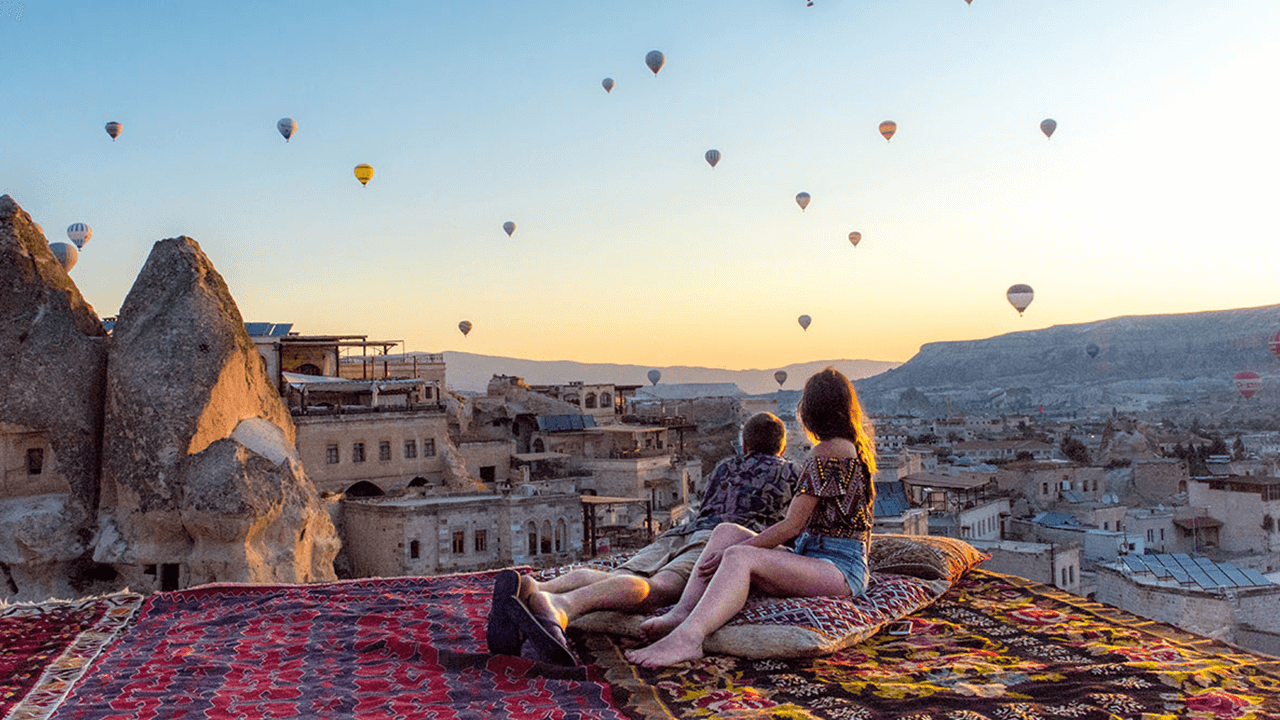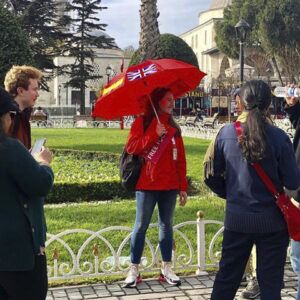Holidays in Cappadocia: Key Dates to Plan Your Visit
When planning your visit to Cappadocia, it’s essential to consider Turkey’s public holidays. Not only do these holidays offer a chance to participate in unique celebrations and gain insight into Turkish culture, but they also impact the availability of services such as museums, administrative offices, and transportation. This article provides a detailed guide to the most significant holidays celebrated in Cappadocia and across Turkey, helping you to prepare for an unforgettable cultural experience.
Understanding Turkey’s Public Holidays
Turkey observes a mix of secular and religious holidays. Secular holidays are fixed to specific dates, while Islamic holidays follow the lunar Hijri calendar, causing their dates to shift each year. This blend of traditions reflects the country’s unique cultural and historical heritage.
Secular Holidays
The following holidays are celebrated nationwide and provide a fascinating glimpse into Turkey’s modern history and national pride:
January 1: New Year’s Day
This global holiday marks the start of the new year. While it isn’t deeply rooted in Turkish culture, urban areas, including Cappadocia, may host festivities or special events. Expect closures of public offices and reduced transportation services.
March 18: Martyrs’ Day (Gallipoli Victory Day)
On this day, Turkey honors the soldiers who fought at the Gallipoli Campaign during World War I. While not widely observed with public events in Cappadocia, it remains an important date of reflection for Turkish citizens.
April 23: National Sovereignty and Children’s Day
Declared by Mustafa Kemal Atatürk, this holiday celebrates the founding of the Turkish Parliament in 1920. It’s also dedicated to children, with schools hosting parades and cultural performances. Visitors in Cappadocia can enjoy local celebrations, often held in public squares.
May 19: Commemoration of Atatürk, Youth, and Sports Day
This holiday marks the beginning of the Turkish War of Independence in 1919 and celebrates Turkey’s youth. Expect sporting events, patriotic displays, and special programs that showcase the region’s cultural heritage.
August 30: Victory Day
Victory Day commemorates Turkey’s final triumph in the War of Independence in 1922. Celebrations include military parades and patriotic concerts. In Cappadocia, small-scale events may be organized, making it an opportunity to observe Turkish national pride firsthand.
October 29: Republic Day
The most important national holiday celebrates the proclamation of the Republic of Turkey in 1923. Public buildings are adorned with Turkish flags, and parades and concerts take place nationwide. Cappadocia joins in the celebrations with cultural events and fireworks.
Religious Holidays
Religious holidays in Turkey, particularly in Cappadocia, are deeply significant and offer a unique window into local traditions. Note that businesses and public services may close or operate on reduced schedules during these periods:
Ramadan and Eid al-Fitr (Ramazan Bayramı)
Ramadan, a month of fasting from dawn to sunset, concludes with Eid al-Fitr, a three-day festival filled with family gatherings, feasts, and acts of charity. Cappadocia’s hotels and restaurants often adapt their services to accommodate local customs, and tourists can participate in the joyous atmosphere.
Feast of Sacrifice (Kurban Bayramı)
Also known as Eid al-Adha, this holiday honors the willingness of Prophet Ibrahim (Abraham) to sacrifice his son as an act of obedience to God. Celebrations in Cappadocia include the distribution of meat to the less fortunate. While the holiday is deeply rooted in Islamic traditions, visitors are welcome to observe or participate respectfully.
Islamic New Year
The Islamic New Year, or Hijri New Year, marks the beginning of the lunar calendar and is celebrated quietly with prayers and reflection. While not widely marked with public events, it holds cultural and religious significance.
Ascension of Prophet Muhammad
This holiday, known as Lailat al-Miraj, commemorates the Prophet Muhammad’s ascension to heaven. Special prayers are held at mosques, and the day is considered sacred in Islamic culture.
Tips for Visiting Cappadocia During Holidays
To make the most of your visit during holidays, consider the following tips:
- Plan ahead: Many public offices, banks, and cultural institutions close during holidays. Verify opening hours for museums and attractions in advance.
- Embrace local culture: Holidays provide a fantastic opportunity to connect with local traditions, from attending public celebrations to observing customs in rural villages.
- Be mindful of religious practices: During Ramadan, avoid eating or drinking in public spaces during daylight hours out of respect for those fasting.
Conclusion
Holidays in Cappadocia offer more than just logistical considerations—they provide a chance to immerse yourself in the vibrant culture and history of Turkey. Whether you’re witnessing the joyous celebrations of Republic Day or experiencing the quiet reverence of Ramadan, these key dates enrich any trip to this extraordinary region. By planning carefully and engaging respectfully, you can enjoy a deeper connection to Cappadocia’s unique cultural tapestry.



3 thoughts on “Holidays in Cappadocia”
★★★★★
Looking for an authentic and enriching experience? ‘Holidays in Cappadocia’ is the place to be! Absolutely worth the visit.
★★★★★
Discovering ‘Holidays in Cappadocia’ was one of the highlights of my trip. Don’t miss out on this gem!
★★★★★
The charm of ‘Holidays in Cappadocia’ captivated me entirely. It’s a destination that leaves no one indifferent.